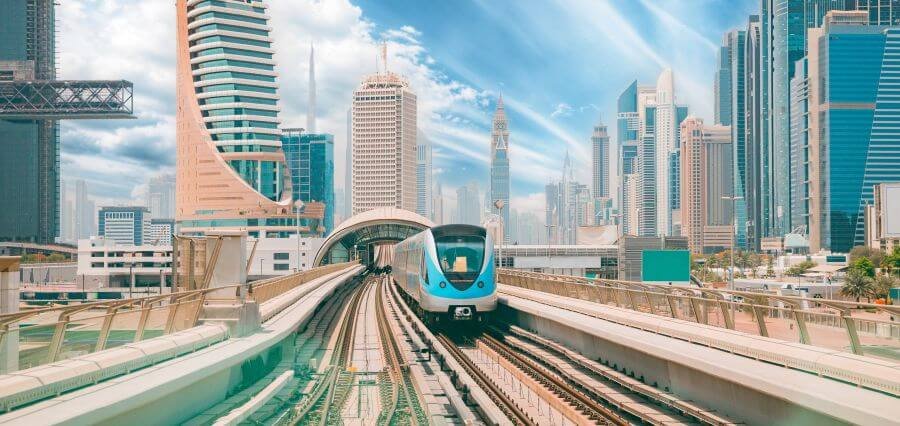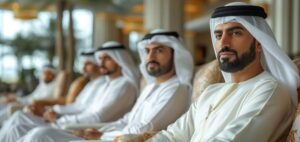#Emerging Star
Dubai, a city known for its stunning skyline, luxurious lifestyle, and rapid development, has established itself as a pivotal player in global business over the past few decades. Positioned strategically at the crossroads of Europe, Asia, and Africa, Dubai has leveraged its geographic location, economic policies, and visionary leadership to become a major hub for trade, finance, tourism, and innovation. The city’s transformation from a small trading port to a global business center is not just a story of rapid urbanization but also a testament to the strategic foresight and adaptability of its leaders. Understanding Dubai’s role in global business requires a deep dive into the factors that have contributed to its rise and the sectors in which it plays a critical role on the world stage.
One of the most significant factors that have propelled Dubai into the global business arena is its strategic location. Situated at the heart of the Middle East, Dubai serves as a bridge between the East and the West, making it an ideal hub for international trade and commerce. The city’s ports and airports are among the busiest in the world, facilitating the movement of goods and people across continents. The Jebel Ali Port, for instance, is the largest man-made harbour in the world and a key gateway for goods entering and leaving the Middle East. Similarly, Dubai International Airport is one of the busiest airports globally in terms of international passenger traffic, serving as a major transit point for travellers between Europe, Asia, and Africa. This connectivity has made Dubai an indispensable link in global supply chains, attracting multinational corporations and logistics companies to set up operations in the city.
Dubai’s rise as a global business hub is also closely linked to its business-friendly policies and economic diversification efforts. Recognizing the limitations of an oil-dependent economy, Dubai’s leadership, under the guidance of Sheikh Mohammed bin Rashid Al Maktoum, has pursued a strategy of economic diversification that has seen the city evolve into a center for finance, tourism, real estate, and technology. The establishment of free zones, such as the Jebel Ali Free Zone (JAFZA) and Dubai International Financial Centre (DIFC), has been instrumental in attracting foreign investment and multinational corporations. These free zones offer numerous incentives, including tax exemptions, full foreign ownership, and streamlined regulatory processes, making Dubai an attractive destination for businesses seeking to expand their global footprint.
The finance sector, in particular, has emerged as a cornerstone of Dubai’s economy, with the DIFC playing a central role in positioning the city as a leading financial center in the Middle East and North Africa (MENA) region. The DIFC is home to a diverse range of financial institutions, including banks, insurance companies, asset management firms, and fintech startups, many of which use Dubai as a base for their regional and global operations. The presence of such a robust financial ecosystem has not only boosted Dubai’s status as a global business hub but also facilitated the flow of capital into emerging markets across the MENA region.
Tourism is another key pillar of Dubai’s global business strategy. The city has invested heavily in developing world-class infrastructure and attractions that draw millions of visitors each year. From the iconic Burj Khalifa, the tallest building in the world, to the Palm Jumeirah, an artificial island shaped like a palm tree, Dubai is home to some of the most recognizable landmarks in the world. The city’s luxury hotels, shopping malls, and entertainment options cater to a wide range of tourists, from affluent travelers seeking luxury experiences to families and business tourists attending international conferences and exhibitions. The tourism sector not only generates significant revenue for the city but also reinforces Dubai’s brand as a global destination for business and leisure.
Dubai’s ability to attract and host major international events has further cemented its role in global business. The city has become a preferred location for conferences, exhibitions, and trade shows that draw participants from around the world. The Dubai World Trade Centre, for example, hosts numerous high-profile events each year, ranging from the Dubai Airshow to GITEX Technology Week, one of the largest tech events in the world. These events not only bring together industry leaders and experts but also provide a platform for networking, knowledge exchange, and business deals that have global implications.
In recent years, Dubai has also emerged as a leader in innovation and technology, further enhancing its role in global business. The city’s leadership has made significant investments in building a knowledge-based economy, with a focus on sectors such as artificial intelligence, blockchain, and smart cities. The Dubai Future Foundation, established to drive innovation in the city, has launched several initiatives aimed at fostering a culture of innovation and entrepreneurship. The Dubai 3D Printing Strategy and the Dubai Blockchain Strategy are just two examples of how the city is positioning itself at the forefront of technological advancements. These initiatives not only attract tech companies and startups to Dubai but also create an environment where innovation can thrive, contributing to the city’s long-term economic sustainability.
The development of smart city initiatives is another area where Dubai is leading the way. The Dubai Smart City initiative, launched in 2013, aims to make Dubai one of the smartest cities in the world by leveraging technology to improve the quality of life for its residents and enhance the efficiency of city services. From smart transportation systems to digital governance, Dubai is implementing a wide range of technologies to create a connected, efficient, and sustainable urban environment. These efforts not only improve the city’s livability but also make it an attractive destination for businesses and investors looking for a forward-thinking, technologically advanced environment.
Sustainability is increasingly becoming a focal point of Dubai’s global business strategy. As the world grapples with the challenges of climate change, Dubai is taking proactive steps to ensure that its growth is environmentally sustainable. The Dubai Clean Energy Strategy 2050, which aims to make the city a global leader in clean energy, is a testament to this commitment. The strategy includes ambitious targets for increasing the share of renewable energy in Dubai’s energy mix and reducing carbon emissions. The development of the Mohammed bin Rashid Al Maktoum Solar Park, the largest single-site solar project in the world, is a key component of this strategy. By investing in renewable energy and promoting sustainable practices, Dubai is positioning itself as a leader in the global transition to a green economy.
Dubai’s role in global business is also shaped by its commitment to building a diverse and inclusive society. The city is home to a multicultural population, with expatriates from around the world making up the majority of its residents. This diversity is reflected in Dubai’s business environment, where companies benefit from a global talent pool and a wide range of cultural perspectives. The city’s leadership has made concerted efforts to create an inclusive environment that embraces diversity and promotes equality, making Dubai an attractive destination for businesses seeking to tap into a global workforce.
Moreover, Dubai’s legal and regulatory framework has been designed to support its role as a global business hub. The city has implemented a range of business-friendly policies that streamline the process of setting up and operating a business. The legal framework is also aligned with international standards, providing a stable and transparent environment for businesses to operate. The establishment of specialized courts, such as the DIFC Courts, which operate under a common law framework, further enhances Dubai’s appeal as a business-friendly jurisdiction.
In conclusion, Dubai’s role in global business is multifaceted and continues to evolve as the city adapts to changing global dynamics. Its strategic location, business-friendly policies, diversification efforts, and commitment to innovation and sustainability have all contributed to its emergence as a key player on the world stage. As Dubai continues to grow and develop, it is likely to play an increasingly important role in shaping the future of global business. Whether through its leadership in technology, finance, tourism, or sustainability, Dubai is setting the standard for what a modern global city can achieve.





